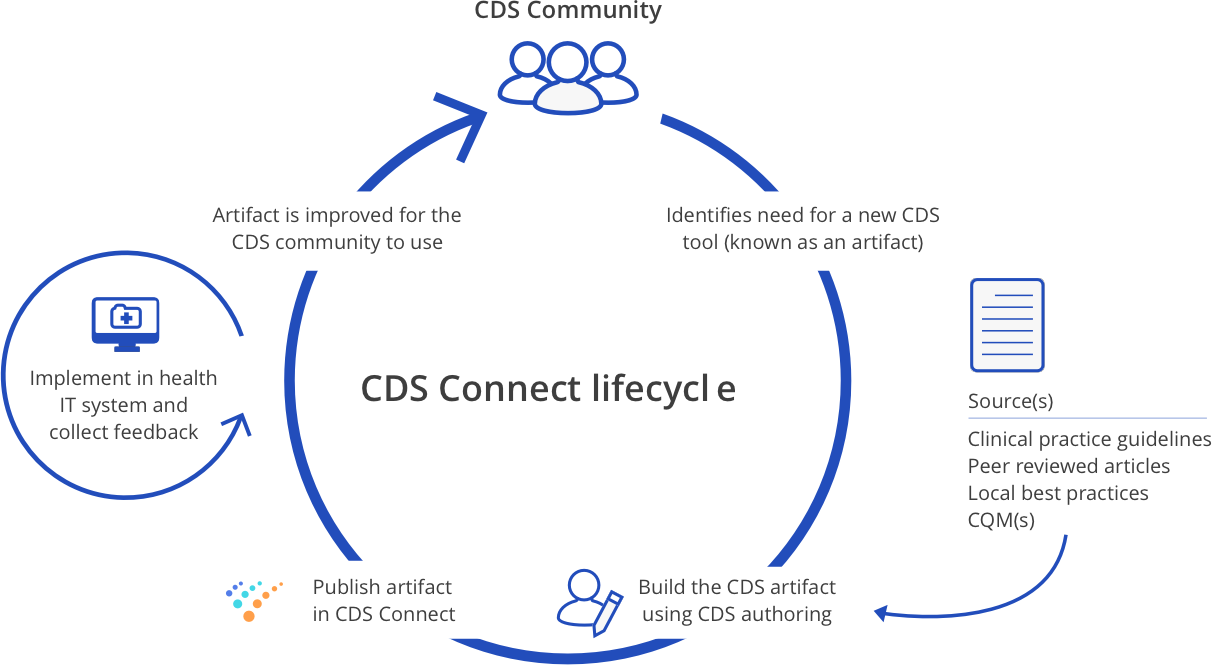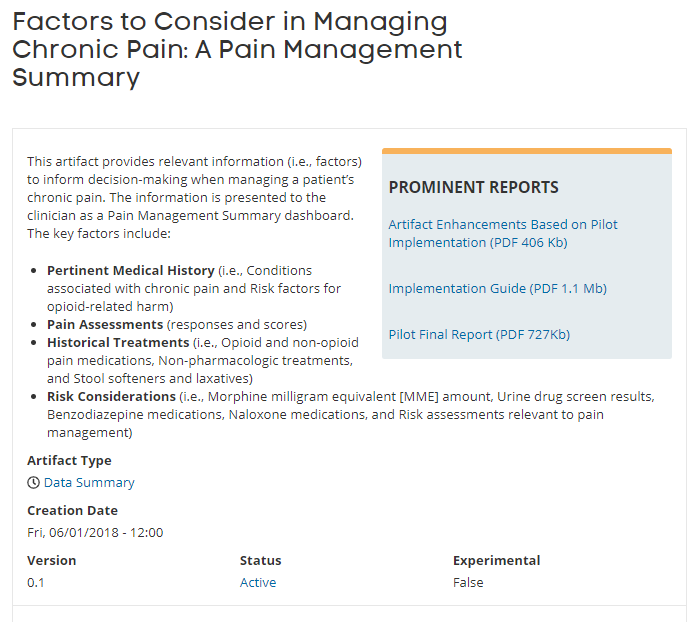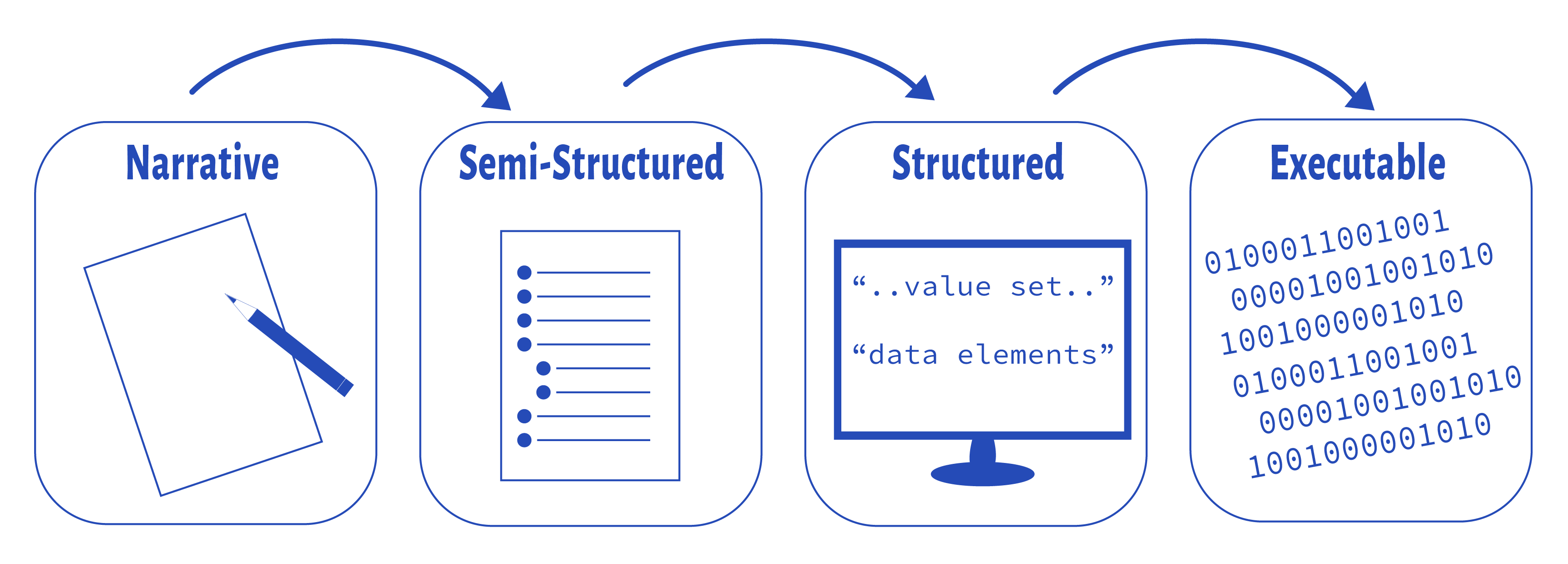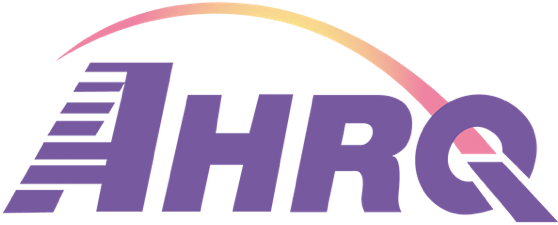Improving quality of care through clinical decision support (CDS) takes a community

The CDS Connect lifecycle begins with the CDS community, which identifies a need for a new CDS artifact. The artifact is then built through CDS authoring, whose sources include clinical practice guidelines, peer-reviewed articles, local best practices, and Clinical Quality Measures (CQMs). From there, the artifact is published on the Repository. At this point, the artifact is implemented in health IT systems and feedback is collected, which is then used to improve the artifact for the CDS community to use.


Through the Repository, CDS contributors and consumers will have unparalleled and equal access to knowledge driven by cutting edge research in CDS, as well as clinical and regulatory standards. Additionally, organizations that work to balance limited resources will be able to leverage advanced technical resources and secure information critical to the CDS implementation process.
Knowledge Levels
Each artifact has a knowledge level (Boxwala et al. JAMIA vol. 18 Suppl 1, 2011). This represents both the maturity and the readiness of the artifact to be implemented into a real-world clinical setting.

- Narrative text created by a guideline or CQM developer.
- Semi-structured text that describes the recommendations for implementation in CDS.
- Structured code that is interpretable by a computer (includes data elements, value sets, logic).
- Executable code that is interpretable by a CDS system at a local level. This will vary for each site.
Other components of the initiative include a PCOR CDS Learning Network, funding opportunities for grants to scale and develop CDS, and an evaluation.





